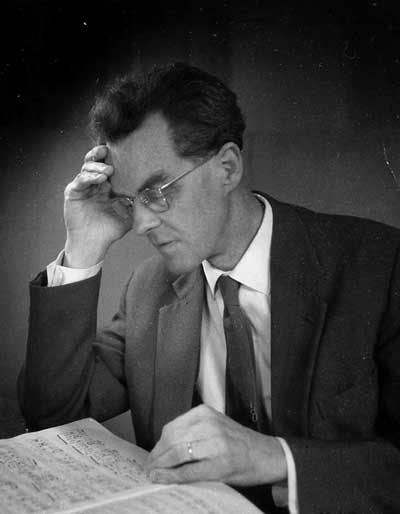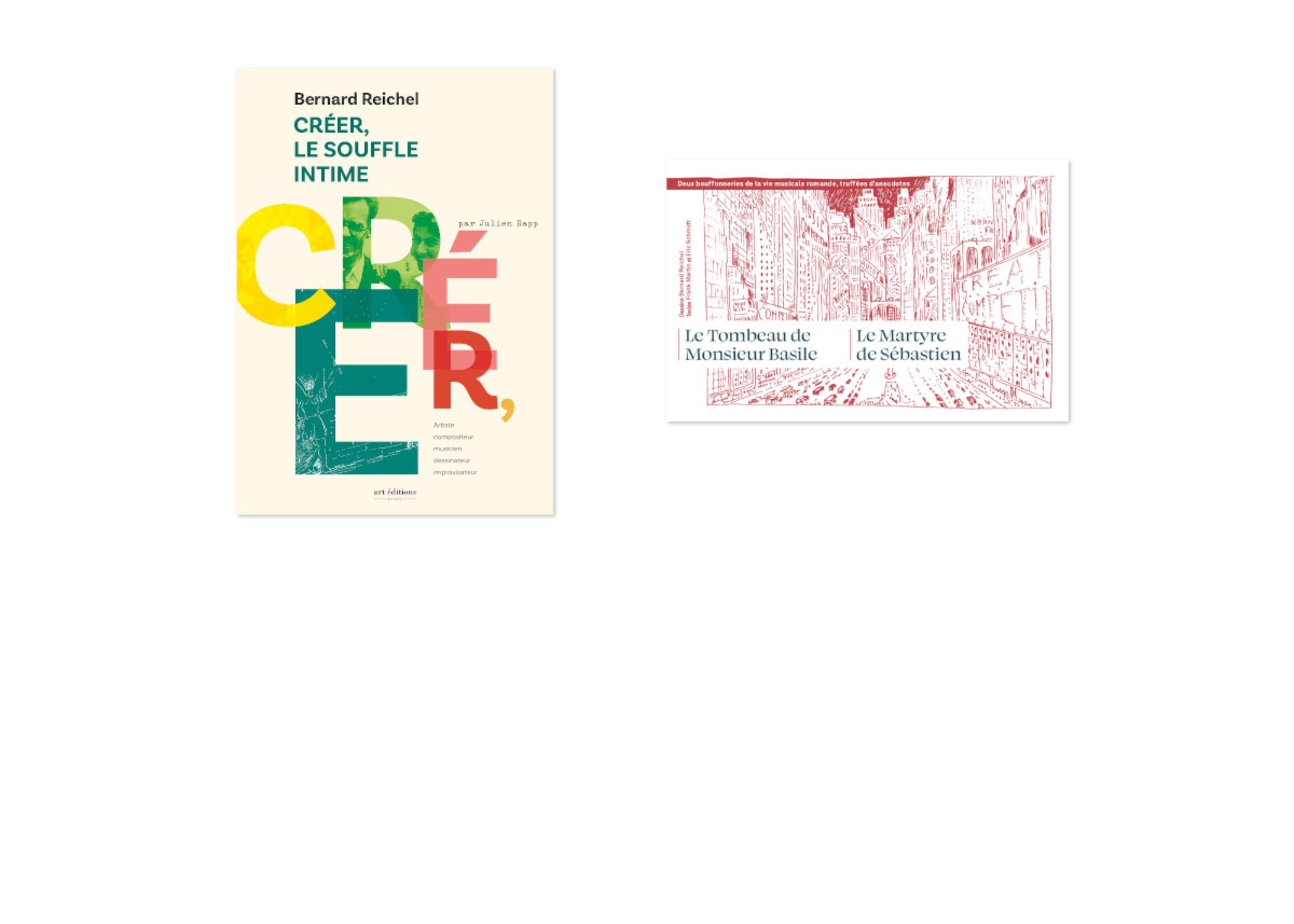Bernard Reichel : August 3rd, 1901 – December 10 1992

Bernard Reichel’s origins are to be found in Silesia and Provence. The family settled in the French speaking part of Switzerland in the latter part of the nineteenth century. Bernard Reichel was born in Neuchâtel in 1901. Chamber music was a common practise in the family, and through the influence of good teachers, he quickly chose his path as both composer and musician. Charles Faller at Le Locle, Paul Benner in Neuchâtel, Hermann Suter et Adolphe Hamm at the Basel Conservatory, trained him in piano, organ and composition. Later, in Geneva he studied with Emile Jaques-Dalcroze, and with William Montillet. Composition studies with Ernst Lévy in Paris allowed him to get acquainted with the great composers of the time : Debussy, Ravel, Honegger, Roussel among others. In 1925, Bernard Reichel settles in Geneva as a music teacher and church organist. He befriends Frank Martin at the Jaques-Dalcroze Institute, teaches harmony at the Conservatory and works as an organist. In 1971, he is awarded the “prix de la musique” by the City of Geneva. Composition remains his major interest. Rather than adopting the dodecaphonic system, he creates a personal musical language influenced by folk music, hymns and medieval modalities, all handled with great liberty and applying constant tonal enlargement . The great variety of his compositions appeal to both star soloists and chamber music ensembles : piano, flute, alto, cello and organ concertos; wind or string instrument ensembles; duos, trios, quartets, quintets, octets; scores for organ, piano and harpsichord. Bernard Reichel contributed to the enrichment of church music in Switzerland and in Germany. In Lemgo (Westphalie), his choral works (Psalms, Te Deum, Gloria) have been played on big religious holidays. His works for orchestra have been greatly appreciated in the USA, England, Germany and Switzerland. Bernard Reichel also write for the theatre : “The Life Source “, “Pillar of Fire”, “Summer Tale “, “The Prodigal Son”, “Joan of Arc”, “Saint Francis of Assis”, “The Death of Roland” He also wrote comic books (in the spirit of Rodolphe Töpffer) depicting musicians’ adventures. He spent his last years in Lutry, near Lausanne. The entire body of his work can be consulted at the University of Lausanne Library. Bernard Reichel liked to quote Frédéric Mistral:
“Tel qui me laissera libre dans ma pensée, libre dans mon parler, libre dans ma voie, libre de m’épanouir conformément à ma nature, celui-là est mon ami, et je suis son compatriote. Mais celui qui me gênera dans ma manière d’être, celui qui se moquera de mes larmes ou de mon rire, celui qui me forcera de changer mon langage, qu’il aille au Diable!”
